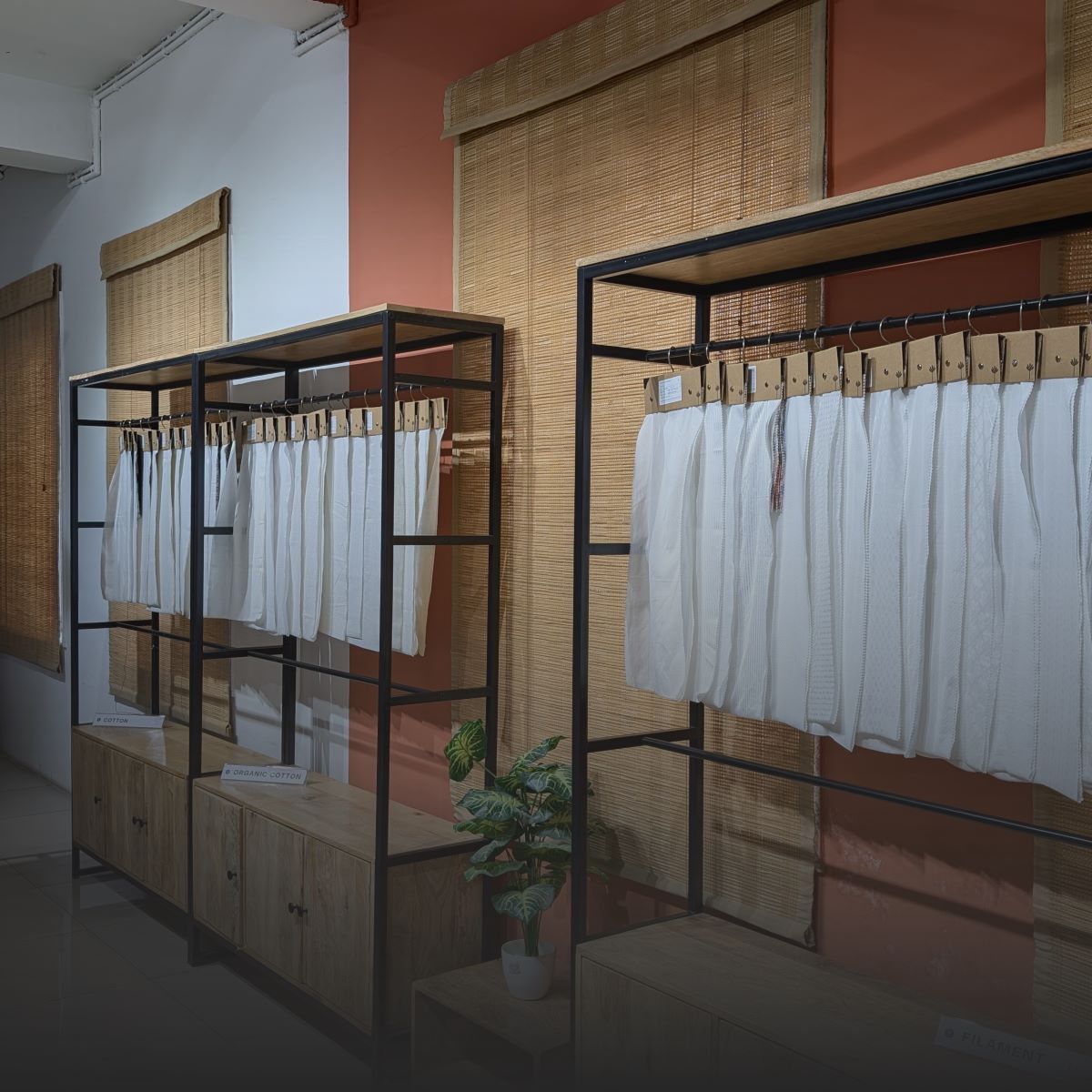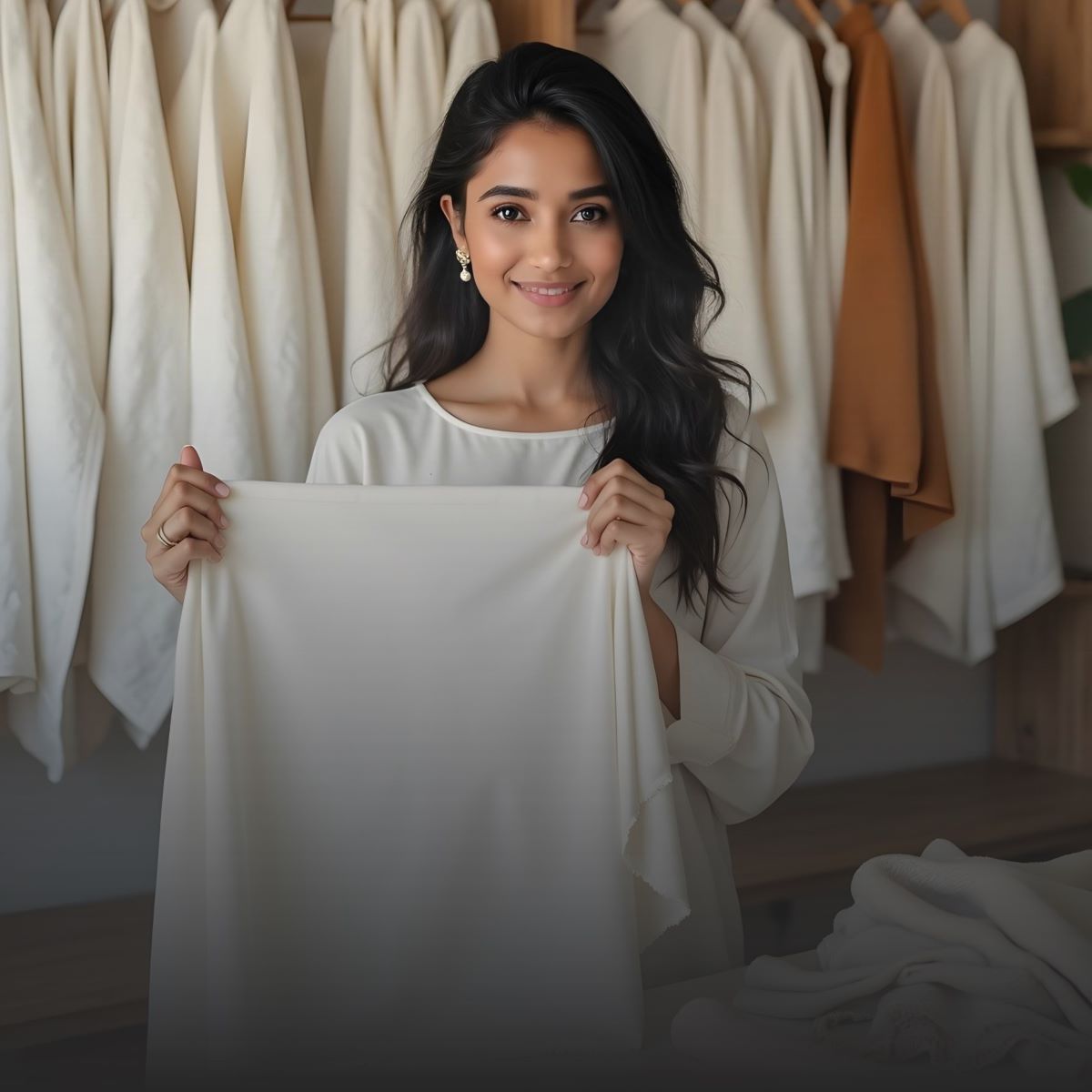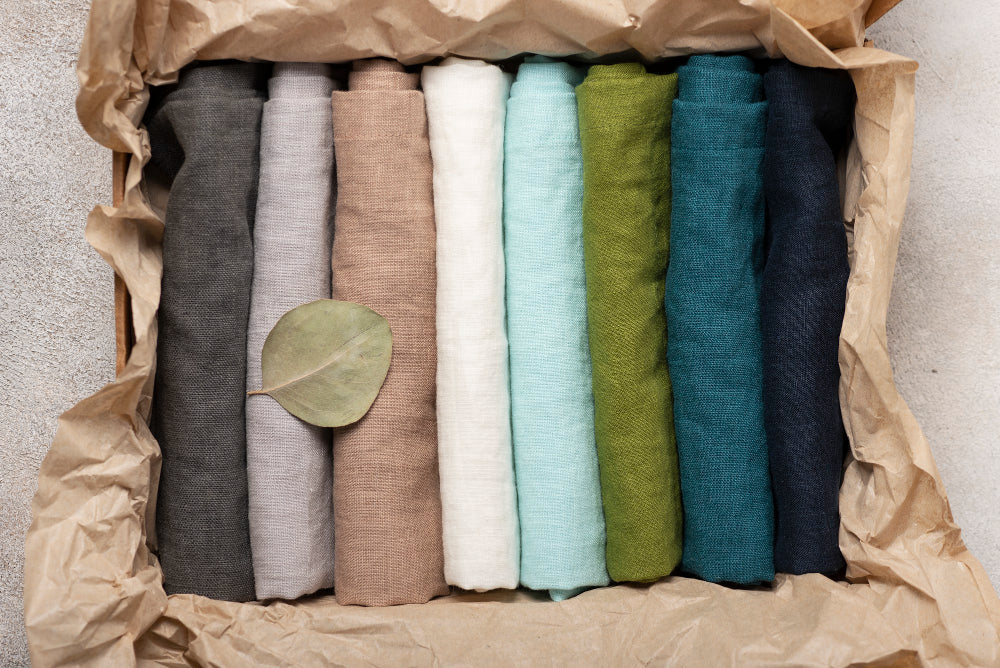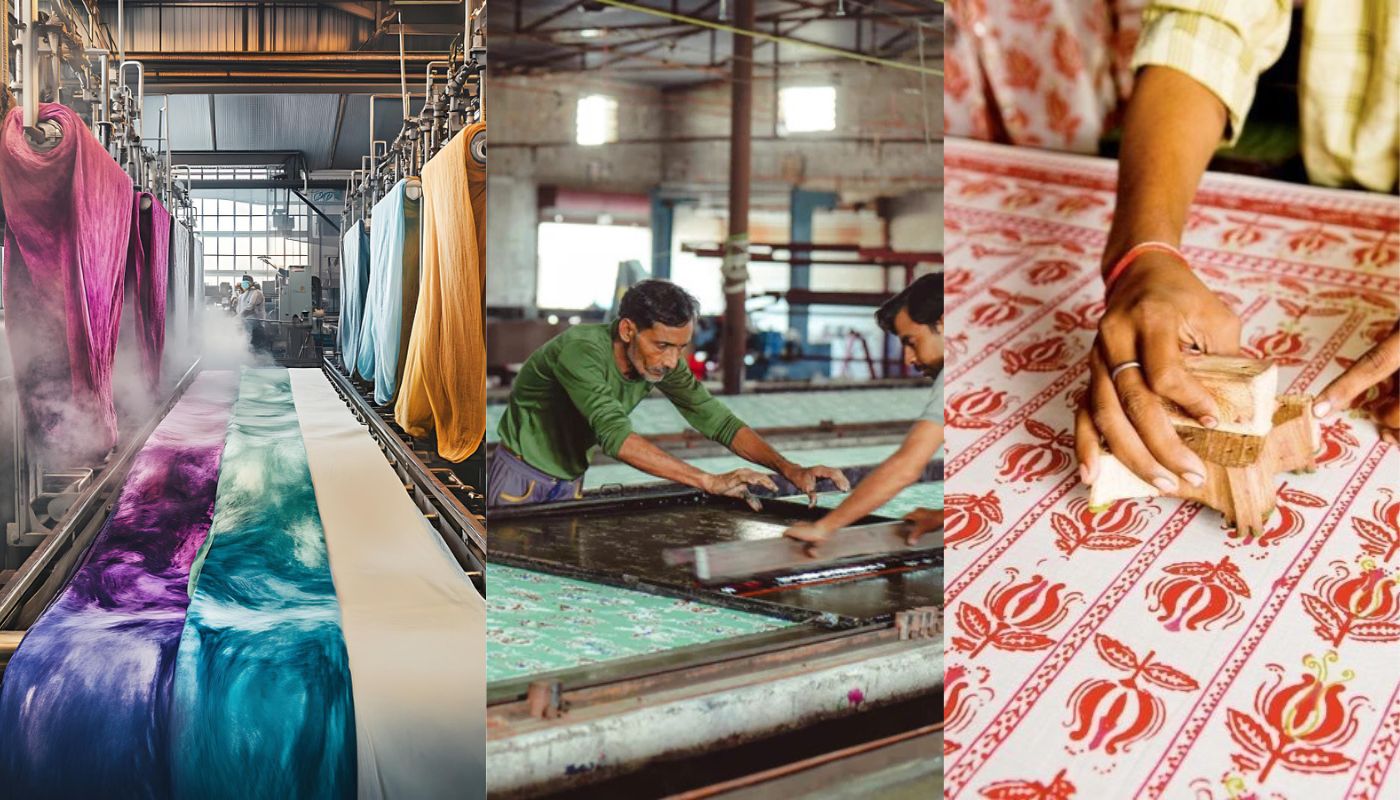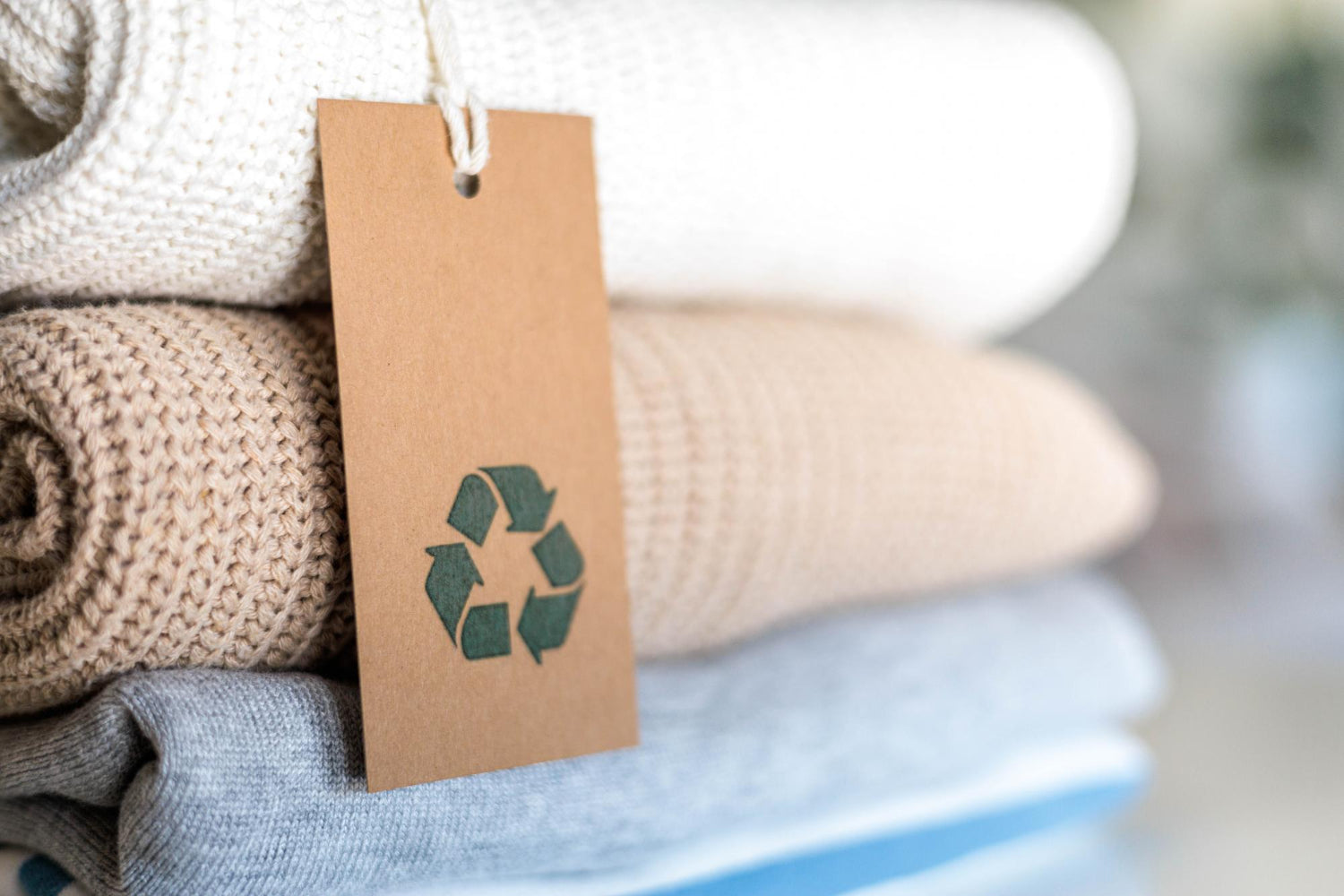Fabric sourcing plays a direct role in how your final product feels, performs and sells. When you order in bulk, your choices shape more than output. They influence long-term impact, cost and trust.
Large-scale production means responsibility grows with volume. You cannot afford poor fabric quality or unclear sourcing. Sustainable supply gives better control and builds stronger customer relationships.
Key reasons to focus on sustainable fabric sourcing:
- Builds long-term product value
- Helps meet buyer expectations
- Supports clean and fair supply chains
- Reduces waste and production risks
- Adds clarity to material origin and handling
You do not need to overhaul everything at once. A few changes in where and how you source can improve your process. This guide gives clear direction, one step at a time.
What Makes a Wholesale Fabric Supplier Sustainable?

Sustainability in fabric supply depends on more than the fabric name or color. It comes from how the fabric is made, what it contains and how the process respects people and the environment. A true supplier keeps these things in balance and does not treat them as an afterthought.
Look for these signs when checking a supplier:
- Clear sourcing details with material origin
- Certified fabric options such as GOTS or Oeko Tex
- Blends made from organic or recycled fibers
- Processes that avoid harmful treatments or dyes
- Fair labor practices across all levels of supply
You should be able to ask where the fabric comes from and get an honest, complete answer. If details are vague or skipped, that raises concerns.
Once you understand these signals, the next step is knowing how to match them with your own sourcing needs.
What to Look for in a Sustainable Wholesale Fabric Supplier

Finding the right supplier is not only about what they offer. It is also about how well their system works for your production cycle. You need materials that meet your standards, but also a team that supports your timeline, volume and process. A good supplier gives clarity, not confusion.
Key points to check before placing your order:
- A range of sustainable fabrics ready for bulk purchase
- Sampling support for quality checks before full runs
- Low starting quantity to test new styles
- In-house printing or dyeing done with clean methods
- Reliable shipping and clear lead times
Do not focus only on price. Look at how the supplier handles requests, explains fabric use and communicates across teams.
The next step is understanding why working with the right supplier brings steady value over time.
Benefits of Working with Sustainable Fabric Suppliers

A responsible supplier does more than deliver fabric. They reduce delays, improve consistency and make your work easier. Over time, this adds real strength to your business. A trusted source saves effort across design, production and customer care.
Working with the right supplier brings these advantages:
- Stronger product quality that lasts
- Fewer returns due to better fabric performance
- Cleaner inputs that support long-term brand trust
- Easier alignment with eco-label or market demands
- More stable access to certified and traceable stock
Good suppliers support growth. They handle problems when they come up and help you stay on track when timelines shift.
Next, it helps to know who these suppliers are and how their approach fits different business needs.
Trusted Wholesale Fabric Suppliers with a Focus on Sustainable Options
Fabriclore

Fabriclore offers end-to-end fabric sourcing support for fashion businesses across the globe. It supplies certified sustainable fabrics with full technical transparency, backed by fast sampling and doorstep delivery. With a focus on low MOQ and custom options, it helps small and mid-size labels access reliable, clean materials without long lead times.
Key features of Fabriclore:
- Supplies Organic Cotton, LENZING™, LIVA™, TENCEL™ and Bemberg™ blends
- Supports design, dyeing and printing with low-impact processes
- Minimum order starts from 50 meters with no hidden yardage loss
- Offers complete fabric specs, including count, weave and fold length
- Ensures timely delivery with fewer follow-ups and full tracking
- Used by over 400 private labels globally
By handling everything from concept to delivery, Fabriclore simplifies the sourcing process. You get the right fabric tested and prepared for production without chasing multiple vendors.
Other suppliers also offer strong, sustainable collections with different strengths and regional focus.
SwatchOn
Offers low-MOQ deadstock and eco fabrics with global shipping. Suited for fashion brands testing short runs.
Offset Warehouse
Based in the UK with a focus on ethical, artisan-made textiles. Good for capsule lines and niche product collections.
GreenTex
Delivers organic and recycled materials in bulk. Known for clean documentation and high repeat consistency.
Nature’s Fabrics
US-based stockist with a focus on bamboo, organic knits and natural blends. Ideal for brands working in babywear and activewear.
The right supplier depends on your product line, batch size and sourcing plan. Once shortlisted, each option should be tested against your exact fabric and delivery needs.
How to Evaluate and Compare Fabric Wholesalers for Your Business

Before you commit to a supplier, take time to assess how they handle orders, communication and quality. Your sourcing partner affects both your product and production timeline. A clear check at the start avoids issues later.
Steps to evaluate fabric wholesalers:
- Order swatches to feel the texture and test material strength
- Ask for certifications and origin information on fabrics offered
- Confirm how often they restock and what delivery window they follow
- Review return terms, custom order support and sample availability
- Make sure they respond quickly and offer help after order placement
Start with a small quantity to check how the process works. A supplier who stays clear and consistent from the first order is easier to scale with later.
In the next section, you will see how to manage common challenges in sustainable sourcing and avoid slowdowns in production.
Challenges You Might Face and How to Overcome Them
Sourcing sustainable fabrics can bring real improvements to your brand, but it does not always go smoothly at the start. Some problems come from limited access. Others relate to pricing or unclear labeling. Knowing these early helps you prepare and choose better paths.
Common sourcing challenges:
- Certain eco-fibers may not be available in your region
- Sustainable fabric pricing is often higher than conventional stock
- Some suppliers list claims without full or correct certifications
- Shipping delays or unclear batch quality may affect consistency
Ways to manage these issues:
- Combine local and global sourcing for better coverage
- Use platforms like Fabriclore that handle testing and specs
- Ask for detailed labelling and confirm with recognized certifications
- Order smaller test lots before scaling large production runs
Facing these problems is part of the shift toward cleaner supply. The goal is not to avoid every issue but to work with partners who support clear solutions.
Next, we will wrap up by helping you decide how to begin your search and place your first sustainable order.
Practical Tips Before Placing Your First Sustainable Fabric Order

Once you have found a supplier that fits your sourcing needs, the next step is to plan your first order carefully. Starting small helps you check both product quality and supplier process without risk. With clear planning, you stay in control from sampling to delivery.
Keep these tips in mind before placing your first sustainable fabric order:
- Set a fixed quantity for your trial batch and track how it performs
- Choose base fabrics that fit across multiple designs
- Double-check all certifications each time you reorder
- Build a steady connection with your supplier to access limited stock
These steps improve your chances of getting the right fabric at the right time. They also help you move from sampling to full-scale production without delays.
Conclusion

Switching to sustainable fabric does not happen all at once. If you are new to sourcing, begin with small steps. Work with what you can manage now and build from there. Each decision brings you closer to a cleaner, more reliable way of doing business.
Keep these points in mind as you plan:
- Start slow and allow your supply chain to adjust over time
- Treat sustainability as an ongoing process, not a final goal
- Choose suppliers who stay open with details and adapt as your needs change
A steady, flexible plan helps you stay consistent as your product line grows. The suppliers you trust today can shape how your business runs tomorrow.
FAQs
What is the most sustainable choice in fabrics?
The most sustainable choice in fabrics often includes materials made from organic, biodegradable or recycled fibers with minimal chemical processing. Organic cotton, hemp and linen rank high due to low water use and clean farming methods. Fabrics like TENCEL™ and Bemberg™ Cupro are also strong options because they come from renewable sources and support closed-loop production.
Which fabric is most environmentally friendly?
Among natural options, hemp is often the most environmentally friendly. It grows fast, needs no synthetic fertilizer and improves soil health. Among semi-synthetics, TENCEL™ and LIVA Eco fabrics stand out. These use wood pulp from certified forests and involve low-impact manufacturing that recycles water and solvents.
What are the three types of sustainable fabric?
Three widely used types of sustainable fabric include:
- Organic Cotton – Grown without harmful chemicals and supports safer farming
- Hemp – Requires little water, grows fast and avoids heavy inputs
- TENCEL™ – Made from wood pulp using a closed-loop system that reuses water
Each of these supports cleaner production and long-term fabric durability.
Which company is best for fabric?
Fabriclore is a leading choice for sourcing wholesale fabric with a wide range of sustainable options. It offers organic cotton, LENZING™ fibers, TENCEL™, Bemberg™ Cupro and LIVA blends at low minimums. The platform includes full fabric specs, doorstep delivery and custom printing services. With support for over 400 fashion labels globally, it helps brands access clean fabrics without delays or confusion.
We also happen to be a magnet for suggestions, and would love to catch yours….throw us yours on hello@fabriclore.com
